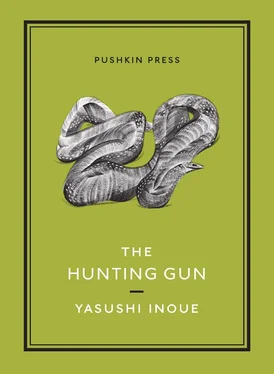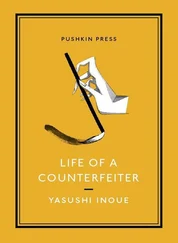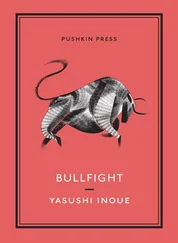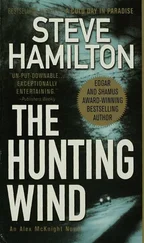*
This was the other me, then, whose existence even I knew nothing about. In this fashion, this very morning, the Australian snake you once said I had hiding inside me, covered with little white speckles, revealed itself. And I realized, too, come to think of it, that all this time, for thirteen years, that sepia-coloured southern snake of Midori’s had been hiding what it knew. It had swallowed the secret of our being in Atami together with a flick of its red tongue, quick as a ripple of heat in the air, and then acted as if nothing had happened.
What are these snakes we carry inside us? Egotism, jealousy, destiny… the sum of all these things, I guess, a sort of karma too strong for us to fight. I regret that I will never have the occasion to learn what you meant. At any rate, these snakes inside us are pitiful creatures. I remember coming across the phrase “the sadness of living”, or something close to that, in a book; as I write these words, I feel my heart brushing up against a similar emotion, irredeemably sad and cold. Oh, what is this thing we carry inside us — intolerably unpleasant, yet at the same time unbearably sad!
Having said this much, though, I realize that I still haven’t shared my true self with you. When I first took up my pen to write this letter, my determination was easily blunted; I kept trying to escape, to run away from the things that scared me.
The other me, the one I didn’t know about — what a nice excuse that is. I said just now that I noticed the white snake inside me for the first time today. That this was the first time it let me see it.
I was lying. That is not the truth. I have known about it, I’m sure, for ages.
*
Oh, when I recall that night, the night of 6th August, when the entire Hanshin region was transformed into an ocean of flames, I feel as though my heart could burst. Shōko and I spent the night in the air raid shelter you had designed for us, and at one point, when the B-29s returned yet again and plastered the sky overhead with their droning, I found myself suddenly plunged into a sense of pointlessness and loneliness so fierce I couldn’t do anything against it. I felt so direly alone I can’t even describe it. Terribly, miserably alone. After a while I couldn’t bear just sitting around any longer, so I got up and stepped outside. And there you were, standing there.
The whole sky, to the west and the east, looked raw, brilliant red. The flames were moving towards your house, and yet even so you had come running to me, you were standing by the shelter’s entrance. I went back into the shelter with you, and then, the second we were inside, I burst out sobbing. Both Shōko and you assumed an excess of fear had made me hysterical. I was never able to explain to you what I was feeling, not clearly — not then, not later. Forgive me. Even as I basked in the embrace of your great love, a love greater than I deserved, I was wishing I could be like you, coming to check on us in our shelter — that I could have gone and stood outside the shelter at Kadota’s hospital in Hyōgo, with its clean white walls, which I had seen just once from a train window. The desire was so strong my body shook with it, and it took all my energy to hold it in, even as I choked on my tears.
And yet that wasn’t the first time I noticed this sort of feeling inside me, either. To tell the truth, years earlier, in the building at the university in Kyoto, I was so taken aback when you pointed out the existence of that small, white snake inside me that I couldn’t even move. Your eyes have never scared me more than they did then. I’m sure you didn’t really mean anything when you spoke those words, but I felt as if you had seen straight into my heart, and it made me wince. I had been feeling ill on account of all those snakes, the real ones, but now, all at once, the queasiness vanished. I lifted my eyes slowly to your face, terrified, and as it happened— for some reason, I don’t know why — you were just standing there with an unlit cigarette in your mouth, something you had never done before, gazing off at some point in the distance, a dazed look on your face. Maybe I was just imagining it, but your expression seemed emptier than any I had ever seen you wear. It lasted only a second, though; by the time you turned to look at me, you were your usual, mild self again.
Until that day, I had never managed to get a clear sense of the other me inside me, but you gave it a name, and ever since then I’ve thought of that second self as a little white snake. That night, I wrote about the snake in my diary. Small white snake small white snake… I filled up a page with those words, column after column, endlessly, all the while picturing the little snake, like a statuette, coiling around and around in perfect, taut circles, each tighter than the last, its small, pointy, drill-like head sticking straight up above the uppermost ring. Imagining the frightening, disagreeable thing I had inside me in that way — as something so clean, and in a form that seemed in some way to capture the sadness, the headlong intensity of being a woman — gave me some slight consolation. God himself, I was sure, would look upon a snake like that with tenderness and sorrow. He would pity it. Well, that was the nice story I told myself. And that night, my wickedness grew a full size larger.
Yes. I’ve said this much, so I might as well write it all. Please don’t be angry. It has to do with that windy evening at the Atami Hotel thirteen years ago, when we vowed to be evil together, to deceive the entire world so that we could cherish our love.
That night, right after we exchanged that appalling vow, I lay down on my back on the well-starched white sheets, because I had nothing more to say, and for ages I just stared into the darkness. No other time in my life made as deep an impression on me as that period of silence. Maybe it lasted only five or six minutes. Maybe we stayed like that, not speaking, for half an hour, or an hour.
I was utterly alone then. I cradled my soul in my arms, forgetful even that you were stretched out beside me. Why, when we had just formed a united front, so to speak, to battle for our love, why, at a moment that should have been the most fulfilling, did I tumble into that helpless solitude?
That night you decided to deceive everyone, the entire world. Surely, though, you did not include me in your plan — I was the one person you would not deceive. But I had no intention of treating you as an exception. All my life, as long as I lived, I would deceive Midori, and the world — and you, and even myself… yes, that was the life I had been dealt. That realization flickered like a ghost light in the depths of my lonely soul.
I simply had to find some way to sever my fierce attachment to Kadota, a feeling that could have been either love or hatred. Because I could not forgive his infidelity, I couldn’t, no matter what the nature of his transgression had been. I told myself I’d do anything, it didn’t matter what became of me, as long as I could rid myself of my feelings for him. I was in agony. I was yearning, my whole body was yearning, for something that would let me smother that suffering.
And now, oh, what a travesty. Thirteen years since that night, nothing has changed.
*
To love, to be loved — how sad such human doings are. I remember once, in my second or third year at girls’ school, we had a series of questions in an English grammar exam about the active and passive forms of verbs. To hit, to be hit, to see, to be seen… and there among the other words on that list were two that sparkled brilliantly: to love, to be loved. As we were all peering down at the questions, licking our pencils, some joker, I never knew who, quietly sent a slip of paper around the room. Two options were penned there, each in a different style of handwriting: Is it, maiden, your desire to love? Or do you rather desire to be loved? Many circles had been drawn in blue and red ink, or in pencil, under the phrase “to be loved”, but not one girl had been moved to place her mark below “to love”. I was no different from the rest, of course, and I drew my own small circle underneath “to be loved”. I guess even at the tender age of sixteen or seventeen, before we know much about what it means to love or be loved, our noses are still able to sniff out, instinctively, the joy of being loved.
Читать дальше









![Ричард Деминг - Whistle Past the Graveyard [= Give the Girl a Gun]](/books/412176/richard-deming-whistle-past-the-graveyard-give-t-thumb.webp)

